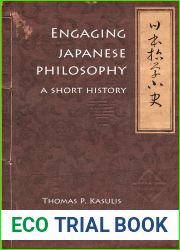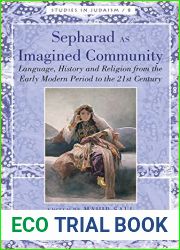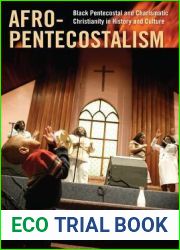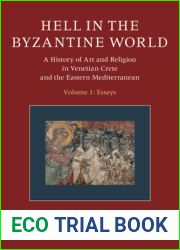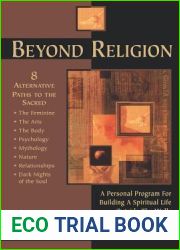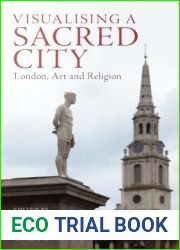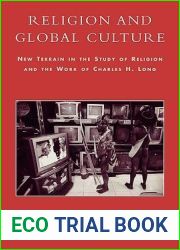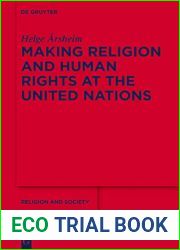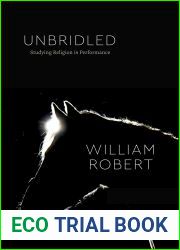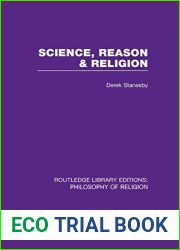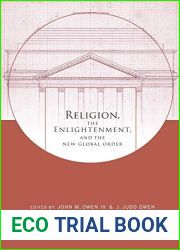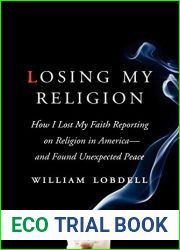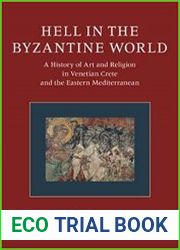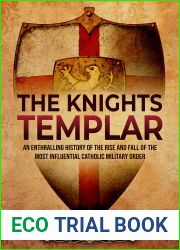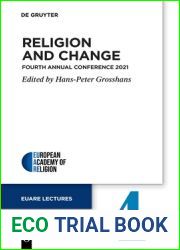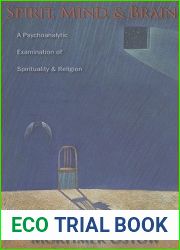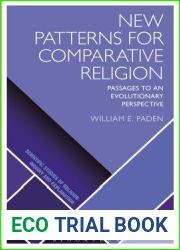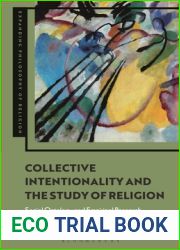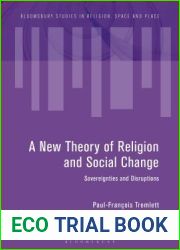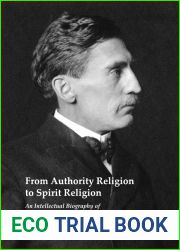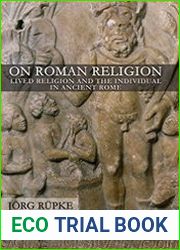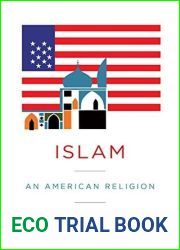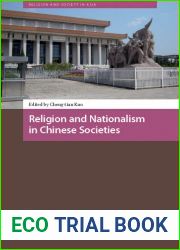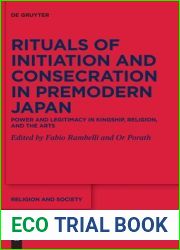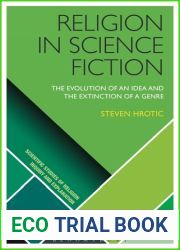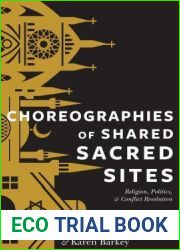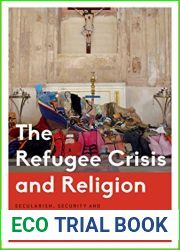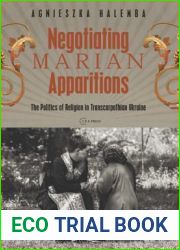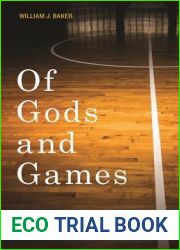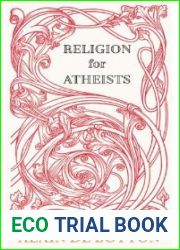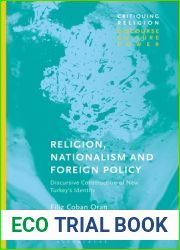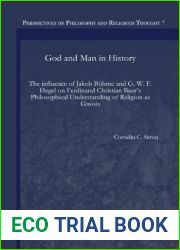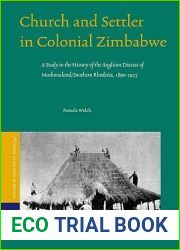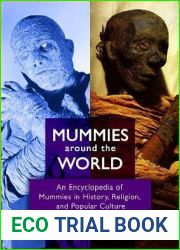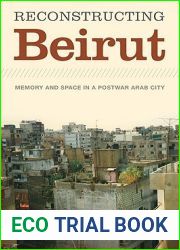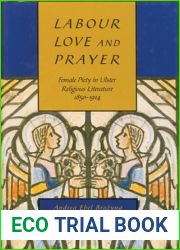
BOOKS - Before Religion: A History of a Modern Concept

Before Religion: A History of a Modern Concept
Author: Brent Nongbri
Year: January 1, 2013
Format: PDF
File size: PDF 2.5 MB
Language: English

Year: January 1, 2013
Format: PDF
File size: PDF 2.5 MB
Language: English

Before Religion A History of a Modern Concept In "Before Religion: A History of a Modern Concept author Brent Nongbri challenges the traditional understanding of religion as a universal and timeless aspect of human experience, arguing that the concept of religion as we know it today is a relatively recent development in European history. Through an examination of ancient texts and historical events, Nongbri demonstrates that the distinction between the sacred and the profane, the religious and the secular, is a product of modern Western thought and not a natural or essential aspect of all cultures and time periods. The book begins by questioning the assumption that religion has always been a distinct sphere of life, separate from politics, economics, and science. Nongbri shows that this idea of religion as a separate category of human experience is a product of the Enlightenment period in Europe, when thinkers began to differentiate between the realm of faith and the realm of reason. Prior to this time, there was no conceptual divide between the sacred and the profane, and religious beliefs and practices were often deeply intertwined with political, social, and economic aspects of life. Nongbri then takes the reader on a journey through two thousand years of human history, exploring how the concept of religion evolved over time and how it was shaped by various social, political, and colonial contexts. He surveys a wide range of texts, from philosophical treatises to legal codes to missionary accounts, to demonstrate how the definition of religion has changed over the centuries. One of the key arguments of the book is that the development of the concept of religion has been closely tied to the rise of modernity and the notion of progress.
Before Religion A History of a Modern Concept In «Before Religion: A History of a Modern Concept» автор Брент Нонгбри бросает вызов традиционному пониманию религии как универсального и вневременного аспекта человеческого опыта, утверждая, что концепция религии, какой мы ее знаем сегодня, является относительно недавним событием в европейской истории. Исследуя древние тексты и исторические события, Нонгбри демонстрирует, что различие между священным и профанным, религиозным и светским, является продуктом современной западной мысли, а не естественным или существенным аспектом всех культур и временных периодов. Книга начинается с того, что ставится под сомнение предположение о том, что религия всегда была отдельной сферой жизни, отдельной от политики, экономики и науки. Нонгбри показывает, что эта идея религии как отдельной категории человеческого опыта является продуктом периода Просвещения в Европе, когда мыслители начали различать сферу веры и сферу разума. До этого времени не существовало концептуального разделения между священным и профанным, а религиозные верования и практики часто были глубоко переплетены с политическими, социальными и экономическими аспектами жизни. Затем Нонгбри проводит читателя в путешествие через две тысячи лет человеческой истории, исследуя, как концепция религии развивалась с течением времени и как она формировалась различными социальными, политическими и колониальными контекстами. Он исследует широкий спектр текстов, от философских трактатов до юридических кодексов и миссионерских отчетов, чтобы продемонстрировать, как менялось определение религии на протяжении веков. Одним из ключевых аргументов книги является то, что развитие концепции религии было тесно связано с ростом современности и понятием прогресса.
Before Religion A History of a Modern Concept In « Before Religion : A History of a Modern Concept » L'auteur Brent Nongbri récuse la compréhension traditionnelle de la religion comme un aspect universel et intemporel de l'expérience humaine, affirmant que le concept de la religion que nous sommes nous le savons aujourd'hui, c'est un événement relativement récent dans l'histoire européenne. En examinant les textes anciens et les événements historiques, Nongbri démontre que la distinction entre sacré et profane, religieux et laïc, est le produit de la pensée occidentale moderne, plutôt que l'aspect naturel ou essentiel de toutes les cultures et périodes temporelles. livre commence par remettre en question l'hypothèse que la religion a toujours été un domaine de vie distinct de la politique, de l'économie et de la science. Nongbri montre que cette idée de la religion en tant que catégorie distincte de l'expérience humaine est le produit de la période des Lumières en Europe, lorsque les penseurs ont commencé à distinguer le domaine de la foi et le domaine de la raison. Jusqu'alors, il n'y avait pas de séparation conceptuelle entre le sacré et le profane, et les croyances et pratiques religieuses étaient souvent profondément liées aux aspects politiques, sociaux et économiques de la vie. Nongbri guide ensuite le lecteur dans un voyage à travers deux mille ans d'histoire humaine, explorant comment le concept de religion a évolué au fil du temps et comment il a été façonné par différents contextes sociaux, politiques et coloniaux. Il explore un large éventail de textes, allant des traités philosophiques aux codes juridiques et aux rapports missionnaires, afin de montrer comment la définition de la religion a évolué au fil des siècles. L'un des principaux arguments du livre est que le développement du concept de religion a été étroitement lié à la croissance de la modernité et à la notion de progrès.
Antes de la religión Una historia de un concepto moderno En «Antes de la religión: Una historia de un concepto moderno», el autor Brent Nongbri desafía la comprensión tradicional de la religión como un aspecto universal y atemporal de la experiencia humana, argumentando que el concepto de religión tal como lo conocemos hoy es un acontecimiento relativamente reciente en la historia europea. Explorando textos antiguos y acontecimientos históricos, Nongbri demuestra que la distinción entre lo sagrado y lo profano, lo religioso y lo secular, es producto del pensamiento occidental moderno, no un aspecto natural o esencial de todas las culturas y períodos temporales. libro comienza cuestionando la suposición de que la religión siempre ha sido una esfera separada de la vida, separada de la política, la economía y la ciencia. Nongbri muestra que esta idea de la religión como una categoría separada de la experiencia humana es producto del período de la Ilustración en , cuando los pensadores comenzaron a distinguir entre la esfera de la fe y la esfera de la razón. Hasta ese momento no existía una separación conceptual entre lo sagrado y lo profano, y las creencias y prácticas religiosas a menudo estaban profundamente entrelazadas con los aspectos políticos, sociales y económicos de la vida. Nongbri luego guía al lector en un viaje a través de dos mil de historia humana, investigando cómo el concepto de religión se desarrolló a lo largo del tiempo y cómo se formó por diversos contextos sociales, políticos y coloniales. Explora una amplia gama de textos, desde tratados filosóficos hasta códigos legales e informes misioneros, para demostrar cómo ha cambiado la definición de religión a lo largo de los siglos. Uno de los argumentos clave del libro es que el desarrollo del concepto de religión estaba estrechamente relacionado con el crecimiento de la modernidad y la noción de progreso.
Before Religion A History of a Modern Concept In «Before Religion: A History of a Modern Conceito», o autor Brent Nongbry desafia a compreensão tradicional da religião como um aspecto universal e tardio da experiência humana, afirmando que o conceito de religião que conhecemos hoje é o conceito de religião um acontecimento relativamente recente na história europeia. Ao explorar textos antigos e eventos históricos, Nongbree demonstra que a distinção entre o sagrado e o profano, o religioso e o secular, é um produto do pensamento ocidental moderno, e não um aspecto natural ou essencial de todas as culturas e períodos de tempo. O livro começa por questionar a suposição de que a religião sempre foi uma esfera de vida separada da política, da economia e da ciência. Nongbri mostra que esta ideia de religião como uma categoria de experiência humana é um produto do período do Iluminismo na , quando os pensadores começaram a distinguir entre a esfera da fé e a da mente. Até então, não havia uma divisão conceitual entre o sagrado e o profeta, e as crenças e práticas religiosas eram muitas vezes profundamente entrelaçadas com os aspectos políticos, sociais e econômicos da vida. Depois, Nongbri leva o leitor a viajar através de dois mil anos de história humana, explorando como o conceito de religião evoluiu ao longo do tempo e como ele foi moldado por diferentes contextos sociais, políticos e coloniais. Ele pesquisa uma ampla gama de textos, desde tratados filosóficos até códigos legais e relatórios missionários, para demonstrar como a definição da religião mudou ao longo dos séculos. Um dos argumentos fundamentais do livro é que o desenvolvimento do conceito de religião estava intimamente ligado ao crescimento da modernidade e ao conceito de progresso.
Before Religion A History of a Modern Concept In «Before Religion: A History of a Modern Concept», l'autore Brent Nongbry sfida la comprensione tradizionale della religione come aspetto universale e tardivo dell'esperienza umana, sostenendo che il concetto di religione che conosciamo oggi è un concetto di religione un evento relativamente recente nella storia europea. Esplorando i testi antichi e gli eventi storici, Nongbri dimostra che la distinzione tra sacro e profano, religioso e laico, è un prodotto del pensiero occidentale moderno, piuttosto che un aspetto naturale o essenziale di tutte le culture e periodi temporali. Il libro inizia mettendo in discussione l'ipotesi che la religione sia sempre stata una sfera di vita separata dalla politica, dall'economia e dalla scienza. Nongbri dimostra che questa idea di religione come singola categoria di esperienza umana è il prodotto del periodo dell'Illuminismo in , quando i pensatori cominciarono a distinguere tra la sfera della fede e quella della mente. Fino ad allora non esisteva una separazione concettuale tra sacro e profeta, e le credenze e le pratiche religiose erano spesso profondamente intrecciate con gli aspetti politici, sociali ed economici della vita. Nongbri conduce poi il lettore in viaggio attraverso duemila anni di storia umana, esplorando come il concetto di religione si sia evoluto nel corso del tempo e come esso sia stato formato da diversi contesti sociali, politici e coloniali. Sta esplorando una vasta gamma di testi, dai trattati filosofici ai codici legali e ai rapporti missionari, per dimostrare come è cambiata la definizione di religione nel corso dei secoli. Uno degli argomenti chiave del libro è che lo sviluppo del concetto di religione era strettamente legato alla crescita della modernità e al concetto di progresso.
Before Religion A History of a Modern Concept In „Before Religion: A History of a Modern Concept“ fordert der Autor Brent Nongbri das traditionelle Verständnis von Religion als universellen und zeitlosen Aspekt der menschlichen Erfahrung heraus und argumentiert, dass das Konzept der Religion, wie wir es heute kennen, relativ neu ist Ein Ereignis in der europäischen Geschichte. Durch die Untersuchung alter Texte und historischer Ereignisse zeigt Nongbri, dass die Unterscheidung zwischen heilig und profan, religiös und säkular ein Produkt des modernen westlichen Denkens ist und kein natürlicher oder wesentlicher Aspekt aller Kulturen und Zeiträume. Das Buch beginnt damit, dass die Annahme in Frage gestellt wird, dass Religion immer ein separater bensbereich war, getrennt von Politik, Wirtschaft und Wissenschaft. Nongbri zeigt, dass diese Idee der Religion als separate Kategorie menschlicher Erfahrung ein Produkt der Aufklärung in ist, als Denker begannen, zwischen der Sphäre des Glaubens und der Sphäre der Vernunft zu unterscheiden. Bis zu dieser Zeit gab es keine begriffliche Trennung zwischen dem Heiligen und dem Profanen, und religiöse Überzeugungen und Praktiken waren oft tief mit den politischen, sozialen und wirtschaftlichen Aspekten des bens verwoben. Nongbri nimmt den ser dann mit auf eine Reise durch zweitausend Jahre Menschheitsgeschichte und untersucht, wie sich das Konzept der Religion im Laufe der Zeit entwickelt hat und wie es von verschiedenen sozialen, politischen und kolonialen Kontexten geprägt wurde. Er untersucht eine breite Palette von Texten, von philosophischen Abhandlungen über Gesetzbücher bis hin zu Missionsberichten, um zu zeigen, wie sich die Definition von Religion im Laufe der Jahrhunderte verändert hat. Eines der Hauptargumente des Buches ist, dass die Entwicklung des Konzepts der Religion eng mit dem Wachstum der Moderne und dem Konzept des Fortschritts verbunden war.
Przed religią Historia nowoczesnej koncepcji w „Przed religią: historia nowoczesnej koncepcji”, autor Brent Nongbri kwestionuje tradycyjne rozumienie religii jako uniwersalnego i ponadczasowego aspektu ludzkiego doświadczenia, argumentując, że koncepcja religii, jaką znamy dzisiaj, jest stosunkowo niedawnym wydarzeniem w historii Europy. Badając starożytne teksty i wydarzenia historyczne, Nongbri pokazuje, że rozróżnienie między świętym i profanalnym, religijnym i świeckim, jest wytworem współczesnej myśli zachodniej, a nie naturalnym lub zasadniczym aspektem wszystkich kultur i okresów czasowych. Książka zaczyna się od zakwestionowania założenia, że religia zawsze była odrębną sferą życia, oddzieloną od polityki, ekonomii i nauki. Nongbri pokazuje, że ta idea religii jako odrębnej kategorii ludzkiego doświadczenia jest wytworem okresu oświecenia w Europie, kiedy myśliciele zaczęli rozróżniać sferę wiary i sferę rozumu. Przed tym czasem nie istniała żadna koncepcyjna separacja między świętym a wulgarnym, a wierzenia i praktyki religijne były często głęboko powiązane z politycznymi, społecznymi i ekonomicznymi aspektami życia. Następnie Nongbri zabiera czytelnika w podróż przez dwa tysiące lat historii ludzkości, badając, w jaki sposób koncepcja religii ewoluowała w czasie i jak została ukształtowana przez różne konteksty społeczne, polityczne i kolonialne. Bada szeroką gamę tekstów, od traktatów filozoficznych po kodeksy prawne i relacje misyjne, aby pokazać, jak definicja religii zmieniła się na przestrzeni wieków. Jednym z kluczowych argumentów książki jest to, że rozwój koncepcji religii był ściśle związany ze wzrostem nowoczesności i koncepcją postępu.
לפני הדת A History of a Modern Conference In ”Before Religion: A History of a Modern Conference”, הסופר ברנט נונגברי מאתגר את ההבנה המסורתית של הדת כהיבט אוניברסלי ונצחי של החוויה האנושית, וטוען כי תפיסת הדת כפי שאנו מכירים אותה כיום היא אירוע חדש יחסית בהיסטוריה אירופית. על ידי בחינת טקסטים עתיקים ואירועים היסטוריים, נונגברי מדגים כי ההבחנה בין קדוש וחלל, דתי וחילוני, היא תוצר של מחשבה מערבית מודרנית, לא היבט טבעי או חיוני של כל התרבויות ותקופות הזמן. הספר מתחיל בכך שהוא מטיל ספק בהנחה שהדת תמיד הייתה תחום חיים נפרד, נפרד מפוליטיקה, כלכלה ומדע. נונגברי מראה שרעיון זה של דת כקטגוריה מובחנת של החוויה האנושית הוא תוצר של תקופת הנאורות באירופה, כאשר הוגים החלו להבחין בין תחום האמונה לבין תחום ההיגיון. לפני תקופה זו, לא הייתה הפרדה רעיונית בין הקדושה והחולנית, ואמונות ומנהגים דתיים היו לעתים קרובות שזורות מאוד בהיבטים הפוליטיים, החברתיים והכלכליים של החיים. נונגברי לוקח את הקורא למסע לאורך אלפיים שנות היסטוריה אנושית, חוקר כיצד התפתח מושג הדת עם הזמן וכיצד הוא עוצב על ידי הקשרים חברתיים, פוליטיים וקולוניאליים שונים. הוא בוחן מגוון רחב של טקסטים, החל במסות פילוסופיות וכלה בקודים משפטיים וכלה בסיפורים מיסיונריים, כדי להראות כיצד השתנתה הגדרת הדת במרוצת הדורות. אחד הטיעונים המרכזיים בספר הוא שהתפתחות מושג הדת קשורה קשר הדוק לצמיחת המודרניות ולמושג הקידמה.''
Dinden Önce Modern Bir Kavramın Tarihi "Dinden Önce: Modern Bir Kavramın Tarihi" kitabında yazar Brent Nongbri, bugün bildiğimiz din kavramının Avrupa tarihinde nispeten yeni bir olay olduğunu savunarak, geleneksel din anlayışına insan deneyiminin evrensel ve zamansız bir yönü olarak meydan okuyor. Eski metinleri ve tarihi olayları inceleyerek Nongbri, kutsal ve saygısız, dini ve laik arasındaki ayrımın, tüm kültürlerin ve zaman dilimlerinin doğal veya temel bir yönü değil, modern Batı düşüncesinin bir ürünü olduğunu göstermektedir. Kitap, dinin her zaman siyasetten, ekonomiden ve bilimden ayrı bir yaşam alanı olduğu varsayımını sorgulayarak başlıyor. Nongbri, insan deneyiminin ayrı bir kategorisi olarak din fikrinin, düşünürlerin inanç alanı ile akıl alanı arasında ayrım yapmaya başladığı Avrupa'daki Aydınlanma döneminin bir ürünü olduğunu göstermektedir. Bu zamandan önce, kutsal ve saygısız arasında kavramsal bir ayrım yoktu ve dini inançlar ve uygulamalar genellikle yaşamın politik, sosyal ve ekonomik yönleriyle derinden iç içe geçmişti. Nongbri daha sonra okuyucuyu iki bin yıllık insanlık tarihi boyunca, din kavramının zaman içinde nasıl geliştiğini ve farklı sosyal, politik ve sömürgeci bağlamlar tarafından nasıl şekillendirildiğini araştıran bir yolculuğa çıkarır. Din tanımının yüzyıllar boyunca nasıl değiştiğini göstermek için felsefi incelemelerden yasal kodlara ve misyonerlik hesaplarına kadar çok çeşitli metinleri inceler. Kitabın temel argümanlarından biri, din kavramının gelişiminin modernitenin büyümesi ve ilerleme kavramıyla yakından ilişkili olduğudur.
قبل الدين تاريخ مفهوم حديث في «قبل الدين: تاريخ مفهوم حديث»، يتحدى المؤلف برنت نونغبري الفهم التقليدي للدين باعتباره جانبًا عالميًا وخالدًا للتجربة الإنسانية، بحجة أن مفهوم الدين كما نعرفه اليوم هو حدث حديث نسبيًا في التاريخ الأوروبي. من خلال فحص النصوص القديمة والأحداث التاريخية، يوضح نونغبري أن التمييز بين المقدس والدنس، الديني والعلماني، هو نتاج الفكر الغربي الحديث، وليس جانبًا طبيعيًا أو أساسيًا لجميع الثقافات والفترات الزمنية. يبدأ الكتاب بالتشكيك في الافتراض بأن الدين كان دائمًا مجالًا منفصلاً للحياة، منفصلاً عن السياسة والاقتصاد والعلوم. يُظهر نونغبري أن فكرة الدين كفئة مميزة من التجربة الإنسانية هي نتاج فترة التنوير في أوروبا، عندما بدأ المفكرون في التمييز بين عالم الإيمان ومجال العقل. قبل هذا الوقت، لم يكن هناك فصل مفاهيمي بين المقدس والدنس، وغالبًا ما كانت المعتقدات والممارسات الدينية متشابكة بعمق مع الجوانب السياسية والاجتماعية والاقتصادية للحياة. ثم يأخذ نونغبري القارئ في رحلة عبر ألفي عام من تاريخ البشرية، ويستكشف كيف تطور مفهوم الدين بمرور الوقت وكيف تم تشكيله من خلال سياقات اجتماعية وسياسية واستعمارية مختلفة. يدرس مجموعة واسعة من النصوص، من الأطروحات الفلسفية إلى المدونات القانونية والحسابات التبشيرية، لإظهار كيف تغير تعريف الدين على مر القرون. إحدى الحجج الرئيسية للكتاب هي أن تطوير مفهوم الدين كان مرتبطًا ارتباطًا وثيقًا بنمو الحداثة ومفهوم التقدم.
종교 이전에 "종교 이전: 현대 개념의 역사" 에서 현대 개념의 역사 인 브렌트 농 브리 (Brent Nongbri) 저자는 종교에 대한 전통적인 이해를 인간 경험의 보편적이고 시대를 초월한 측면으로 도전하며 오늘날 우리는 유럽 역사에서 비교적 사건입니다. Nongbri는 고대 텍스트와 역사적 사건을 조사함으로써 종교적, 세속적 인 성스러운 것과 모욕적 인 것의 구별이 모든 문화와 시대의 자연스럽거나 본질적인 측면이 아니라 현대 서구 사상의 산물임을 보여줍니다. 이 책은 종교가 정치, 경제 및 과학과는 별개로 항상 별도의 삶의 영역이라는 가정에 의문을 제기하는 것으로 시작됩니다. Nongbri는 인간 경험의 뚜렷한 범주로서의 종교에 대한이 아이디어가 사상가들이 믿음의 영역과 이성의 영역을 구별하기 시작한 유럽의 깨달음 시대의 산물임을 보여줍니다. 그 이전에는 성스러운 것과 모욕적 인 것 사이에 개념적 분리가 없었으며, 종교적 신념과 관행은 종종 삶의 정치적, 사회적, 경제적 측면과 깊이 얽혀있었습니다. 그런 다음 Nongbri는 2 천년의 인류 역사를 여행하면서 시간이 지남에 따라 종교의 개념이 어떻게 진화했으며 다른 사회적, 정치적, 식민지 적 맥락에 의해 어떻게 형성되었는지 탐구합니다. 그는 철학적 논문에서 법률 코드 및 선교 기록에 이르기까지 광범위한 텍스트를 검토하여 수세기에 걸쳐 종교의 정의가 어떻게 변했는지 보여줍니다. 이 책의 주요 주장 중 하나는 종교 개념의 발전이 근대성의 성장과 진보의 개념과 밀접한 관련이 있다는 것입니다.
宗教前現代概念的歷史「宗教前:現代概念的歷史」作者布倫特·農布裏(Brent Nongbri)對傳統上將宗教理解為人類經驗的普遍和永恒方面提出了挑戰,認為我們今天所知道的宗教的概念是對宗教的傳統理解。,是歐洲歷史上相對較新的事件。在探索古代文獻和歷史事件時,Nongbri證明了神聖與褻瀆,宗教與世俗之間的區別是現代西方思想的產物,不是所有文化和時間段的自然或基本方面。這本書首先提出了一個建議,即宗教一直是一個獨立的生活領域,與政治,經濟和科學分開。Nongbri表明,這種宗教作為人類經驗的獨特類別的觀念是歐洲啟蒙運動的產物,當時思想家開始區分信仰領域和思想領域。在此之前,神聖與褻瀆之間沒有概念上的區別,宗教信仰和習俗通常與生活的政治,社會和經濟方面息息相關。然後,Nongbri帶領讀者經歷了人類歷史的兩千的旅程,探討了宗教的概念如何隨著時間的流逝而演變,以及它是如何在不同的社會,政治和殖民環境中形成的。他研究了廣泛的文本,從哲學論文到法律法規和傳教士報告,以證明幾個世紀以來宗教定義是如何變化的。該書的主要論點之一是,宗教概念的發展與現代性的興起和進步的概念密切相關。










